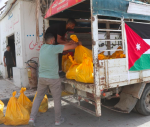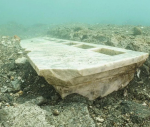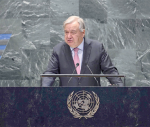You are here
The complexities of Gaza continue
Nov 13,2023 - Last updated at Nov 13,2023
After more than five weeks of the war in Gaza, there are talks of a humanitarian truce, which is better defined as a pause, suggesting that the actual war will continue and this approach accords with Israel’s plans. The complexity of the situation in Gaza is not limited to the inability to stop the war, but also in activating humanitarian corridors and the management of the crisis. This would require a more comprehensive role to be played by various protagonists under the United Nations, including by default Egypt and some other Arab countries.
The other issue is the ongoing narrative about the future governance of Gaza post-Hamas. This is a very challenging situation with many factors to consider, including whether the Palestinian Authority, adopting a similar model to Ramallah, would play this role, or whether there should be a transition phase with international involvement. Suggestions of deploying Arab forces in Gaza after the war will not be welcomed by most of the Arab countries, as they do not want to shoulder the responsibility and their presence cannot be sustained. Both Jordan and Egypt have already expressed their rejection of such a proposal.
The post-Hamas governance of Gaza is particularly fraught as Israelis may prioritise security management in Gaza to prevent the growth of a similar model to Hamas, including the potential for other militias or groups to establish their own power base in such a densely populated area. The Israelis will prioritise security management in Gaza to ensure stability and prevent the repeat of an attack like October 7, and they will want to keep open the option of creating buffer zones and security layers, particularly in the north.
Meanwhile, Israeli military operations on the ground are ongoing, and this suggests two things. The first is related to the continuous flood of Gazans, particularly into the south of territory due to the deep humanitarian crisis. This is exacerbating the humanitarian crisis as the displacement requires temporary accommodations, hospitals and other logistics to deal with the increase in people. This displacement could become a more permanent issue due to the impossibility of those people returning to their homes, at least in the short-term.
Israel will continue to focus on restoring their military and intelligence reputation, including securing the release of their hostages through military operations, as well as the assassination or arrest of the leaders of Hamas.
Talks of a united Arab vision for Gaza are hopeful, but not particularly realistic as there are many disagreements between Arab countries, particularly those bordering the immediate area. This makes the prospect of joint Arab forces in Gaza fraught with risks, starting with the potential confrontation with resistance factions or even direct confrontation with Israeli forces. As such, there is much caution being shown by Arab countries as they do not want to fall into a trap of an unclear role that may evolve later in ways that cannot be foreseen.














Add new comment